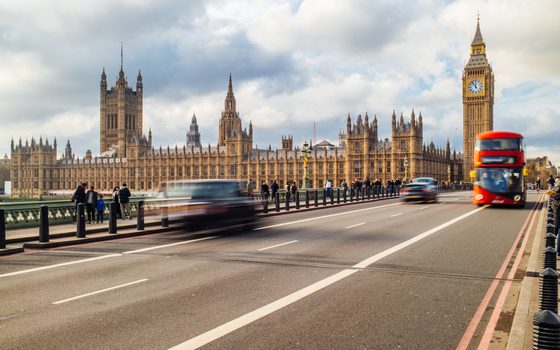Fix productivity crisis by giving workers more paid holiday and higher wages
Research from NEF proposes a new working-time commission to increase paid leave and a new mandate for the Low Pay Commission
12 August 2019
Increasing the wages of workers and giving them more time off to spend them is key to raising the UK’s productivity, according to new research from the New Economics Foundation (NEF) published today. This comes after new Prime Minister Boris Johnson recently set out his ambition to solve the UK’s productivity crisis.
For years, policy makers have tried to solve the productivity puzzle by focusing on the supply-side of the economy – the ways in which we produce goods and deliver services. But the research shows that if the government is serious about productivity, it must now also look at the demand-side of the economy as well – the level and nature of spending across the country.
The report calls for a package of demand-side measures including the creation of a working-time commission to increase holiday entitlements for workers, and to give the Low Pay Commission a new mandate for further sustainable increases in minimum wages.
Weak demand can affect productivity through the behaviour of firms. Firms that are confident in strong demand will invest now to increase efficiency tomorrow, raising their productivity and reaping the benefits over the longer term. But when demand is weak, firms reduce investment and rely instead on cheap labour that can be shed quickly if demand doesn’t improve. As a result, productivity stays lower for longer.
The new findings, using data from the Office of National Statistics (ONS) and Office for Budget Responsibility (OBR), show that the evidence for the UK points to a lack of demand contributing to slow productivity growth. The evidence shows that since 2012, firms have increasingly relied upon cheap labour to deliver goods and services rather than investing in making their businesses more efficient for the long term. NEF’s analysis shows that the proportion (relative to all workers) of zero-hour contract employees, self-employed workers and one-person micro-companies has grown by two fifths since before the financial crisis. And the corresponding lack of investment by firms now explains at least 25% of the UK’s gap in productivity with the historical trend.
This report therefore argues that, alongside continued supply-side interventions such as in corporate governance, industrial strategy and finance, demand needs to be increased significantly over the short-to-medium-term in order to restore productivity growth. To this end, the report sets out a package of demand-side interventions for government:
- Faster increases in the minimum wage. From 2020, NEF proposes that the Low Pay Commission is given a new mandate to recommend increases in the national living wage so that rates reach a par with the UK’s average real living wage by 2025. Increasing minimum wages are a particularly efficient way of boosting demand because workers on minimum wages are far more likely to spend rather than save any increases in salary, compared with higher income individuals.
- Gradual increases in statutory paid holiday. We propose that an external body be created to make independent recommendations to government on regular increases to annual statutory leave entitlement, and on a similar basis to the work currently done by the Low Pay Commission on minimum wages. As long as pay is protected, the evidence shows that increased leisure time for workers can be expected to increase economy wide demand, as well as life satisfaction.
- The frontloading of public investment for a ‘green transformation’. A significant portion of public investment required to transform the economy to a zero carbon future should now be frontloaded over the next five years to boost demand and fast-track progress towards the UK’s targets for zero emissions.
- An increase in public spending on services. NEF analysis has shown that additional, annual public spending worth around 0.5% to 1.5% of GDP – around £15 billion to £32 billion in today’s terms – would be needed to meaningfully improve services and reverse austerity across education, health and care by the mid-2020s. We propose government uses the next multi-year Spending Review to increase investment in public services to meet social need, address inequalities and boost productivity through higher government demand.
- An increase in the generosity of social security. We propose government creates a new ‘weekly national allowance’ (WNA) – worth £2,500 per year for most adults, plus an increase in child benefit – by abolishing the personal allowance of income tax. The proposal is cost neutral overall, but redistributes £8 billion a year from the richest 35% of families to the remaining 65%, with most of the gains concentrated on the poorest 10%. The major reform would significantly reduce inequality and increase economy wide demand as the poorest families are more likely to spend rather save any increase to their incomes compared with richer families.
Alfie Stirling, Head of Economics at the New Economics Foundation, said:
“For more than 10 years now, economists and policy makers have sought to solve the UK’s productivity crisis from the ‘supply-side’ – intervening to change the way we make goods and deliver services in the economy. It hasn’t worked. Average productivity, wages and living standards have experienced their worst decade in almost two centuries.
“It is increasingly clear that weak demand has been the overlooked problem. The issues include many that are deep and structural, ranging from austerity and high levels of inequality to an ageing population and uncertainty over the UK’s trading future. With or without Brexit, the policy response needs to be equally transformative.
“Raising demand by putting more cash in the pockets of the UK’s poorest workers, while giving people more paid time off from work to spend it, should now be part of a radical mix of options for any government that is serious about increasing productivity in a way that works for people and society.”
Image: Pexels
Topics Macroeconomics Work & pay






